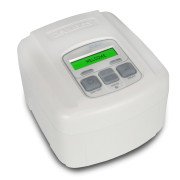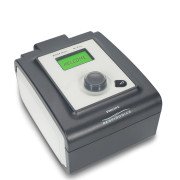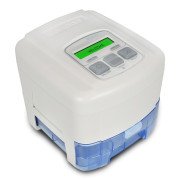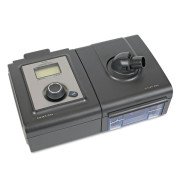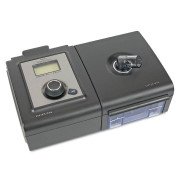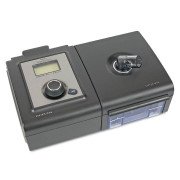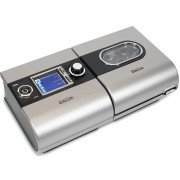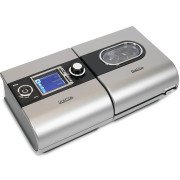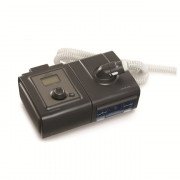
What is a CPAP?
CPAP, or continuous positive airway pressure, is a treatment that uses mild air pressure to keep the airways open. CPAP typically is used by people who have breathing problems, such as sleep apnea.
Overview
Some CPAP machines have other features as well, such as heated humidifiers. CPAP machines are small, lightweight, and fairly quiet. The noise that they make is soft and rhythmic.
CPAP often is the best treatment for obstructive sleep apnea. Sleep apnea is a common disorder that causes pauses in breathing or shallow breaths while you sleep. As a result, not enough air reaches your lungs.In obstructive sleep apnea, your airway collapses or is blocked during sleep. When you try to breathe, any air that squeezes past the blockage can cause loud snoring. Your snoring may wake other people in the house. The mild pressure from CPAP can prevent your airway from collapsing or becoming blocked.
If your doctor prescribes CPAP, you’ll work with Amica Medical Supply to select a CPAP machine. Your doctor will work with you to make sure the settings that he or she prescribes for your CPAP machine are correct. He or she may recommend an overnight sleep study to find the correct settings for you. Your doctor will want to make sure the air pressure from the machine is just enough to keep your airway open while you sleep.
There are many kinds of CPAP machines and masks. Let your doctor know if you're not happy with the type you're using. He or she may suggest switching to a different type that might work better for you.
CPAP also is used to treat preterm infants whose lungs have not fully developed. For this treatment, soft prongs are placed in an infant’s nostrils. The CPAP machine gently blows air into the baby's nose, which helps inflate his or her lungs.
Types of Machines
Fixed Pressure - The most basic machine. Essentially a "fan in a box". A CPAP machine delivers a consistent amount of air pressure, measured in centimeters of water pressure or cm/H2O, via a CPAP mask. The air pressure helps to push back the soft palette of a patient and maintain an open airway. A basic CPAP machine is all most patients need to accomplish this. Different machines have different features and abilities.
Auto Adjust - Titration is defined as the process, operation, or method of determining the concentration of a substance in solution by adding to it a standard reagent of. Nice, huh? Titration, for our purposes, is the process of determining the correct amount of air pressure a patient needs for effective CPAP therapy. This process of titration was performed during your sleep study. An APAP, or Auto CPAP, or Auto-Titrating CPAP has the ability to "titrate" air pressure throughout the night to determine your optimum level. The machine can auto adjust up or down depending on your needs that night. Alcohol consumption, opiate use, and other factors can greatly effect your therapy. An Auto is a luxury, but one that many patients enjoy and depend on. Another note about the APAP Machines, they usually have the ability to record a great deal of data. Since the machine is making decision by itself on your behalf, those decisions are recorded and can reported to your doctor.
BiPAP - BiPAP, or bi-level positive airway pressure helps keep the upper airways of the lungs open by providing a flow of air delivered through a face mask. With BiPaP, a doctor prescribes specific pressures that alternate: A higher pressure is used to breathe in (called inspiratory positive airway pressure, or IPAP) and a lower pressure is used when breathing out (called expiratory positive airway pressure, or EPAP). BiPAP Therapy is very popular for COPD patients over CPAP Therapy.



